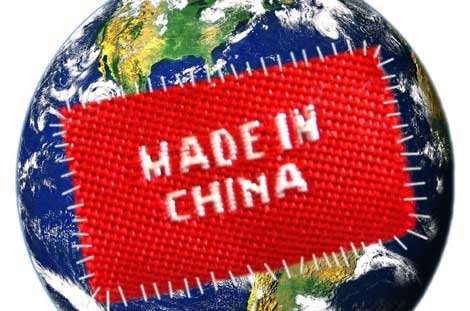
In recent years, some Japanese products are pretended to be made in China, which rises the “fake wind” of the food industry. It is reported that one fruit company in Shizuoka was searched for faking the bamboo shoots imported from China as home-grown. At the same day, another food processing factory labeling the Chinese eels as raised in Japan was been prosecuted by Tokyo court.
In Japan, most domestic products are more expensive than exotic ones. And the point is that Japanese products are of good quality, which is common sense in Japan. On the contrary, the passport of Chinese products is “cheap”, which means that many cheap daily necessities come from China. For example, most of the products in hundred shops (every commodities in this shop is 100 yen) are made in China. The same thing happened in Dollar store in North America.
Several days ago, one article caught my attention, which is about the bitter harvest for some Canadian wineries. In this article, it says that in Ontario some large Canadian wineries are allowed to import cheap foreign wine, blend it at Canadian facilities and bottle and sell it under the “Cellared in Canada” label. But it makes consumers think they’re buying local product when that may not necessarily be the case.
These two situations describe the similar problem, which all due to the price of the products. In my opinion, the original place of production is not so important, yet the quality of that is what we need to pay attention to.
References:
Embarrassment to Chinese products: Japanese products pretend to be made in China
The price of production is a problem if farmers are being exploited. True, quality is an important feature. But to consumers, price is important too. Consumers’ desire to spend as little as possible on food just keeps getting passed further and further back through the chain until it ends up with farmers, which is where it stops.
Very interesting story about Japan faking the origin of some products! It seems that in the US there is a bias against Chinese products. People feel that products “made in America” are better than imports.
Great blog! I’m looking forward to more posts.
Thank you for your comment!
Yes, that’s true. On someone’s opinion, Chinese products equal to “cheap” and “in low quality”. But do you know that even some of the products exported from the U.S. to China have been proved rejected? There are many interesting issues between the import and export in China. Just wait for my post, I will talk more about agri-food issues and news, especially what happened in Asia! 🙂